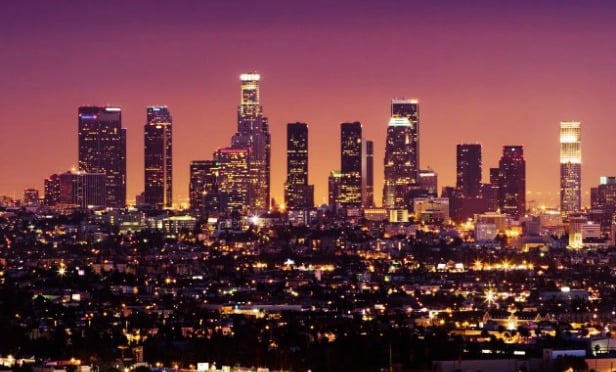Apartment rents increased 4% last year, according to research from Apartment List. In the second half of 2017, reports showed slowed rental rate growth, however, the year closed with more than double the rental rate growth from the prior year. Rents in 2017 increased 1.6%. However, for the last several years, Los Angeles has seen significant increases in rental rates. In 2016, rents increased 6.5%, and in 2015, they were up 5.1%. Today, the average price for a two-bedroom apartment is $1,730, compared to the national average of $1,160.
“Our data shows that rents in L.A. declined slightly from September through December of last year, and then started ticking back up, such that growth has been basically flat over the past six months,” Chris Salviati, housing economist at Apartment List, tells GlobeSt.com. “That said, this sort of seasonal dip is typical in the rental market, and not something we see as a sign of significant cooling in the market. We expect that the increases of the past two months will continue through the spring and summer.”
The substantial rental growth is driven by a fundamental supply and demand imbalance. “At the simplest level, it's a matter of supply and demand,” says Salviati. “Los Angeles has a strong economy, which creates a lot of demand for housing, but the supply of new construction has not kept up, driving rent increases.”
While the rental growth and average rent are significant, Los Angeles is trailing behind other major metros in terms of rent growth. “Year-over-year rent growth in L.A. ranks #24 out of the 100 largest cities in the U.S.,” says Salviati. “The 3.8% growth in LA is well ahead of the national average of 2.3%, but there are still a handful of places seeing faster growth. For comparison, Sacramento has experienced the fastest rent growth over the past year at 8.6%.
There is a los of debate about affordability issues—which to many has become a crisis—and the potential solutions for the rising rents. When asked about the benefits and consequences of rapidly rising rents, Salviati says the increases aren't good or bad. “Increasing rents aren't inherently good or bad,” he explains. “Since rent growth signals high demand for housing, it can be thought of as an indicator of a healthy economy. That said, extended periods of rapid rent growth, as L.A. has experienced, create affordability problems, which certainly have negative impacts.”
Want to continue reading?
Become a Free ALM Digital Reader.
Once you are an ALM Digital Member, you’ll receive:
- Breaking commercial real estate news and analysis, on-site and via our newsletters and custom alerts
- Educational webcasts, white papers, and ebooks from industry thought leaders
- Critical coverage of the property casualty insurance and financial advisory markets on our other ALM sites, PropertyCasualty360 and ThinkAdvisor
Already have an account? Sign In Now
*May exclude premium content© 2024 ALM Global, LLC, All Rights Reserved. Request academic re-use from www.copyright.com. All other uses, submit a request to [email protected]. For more information visit Asset & Logo Licensing.









